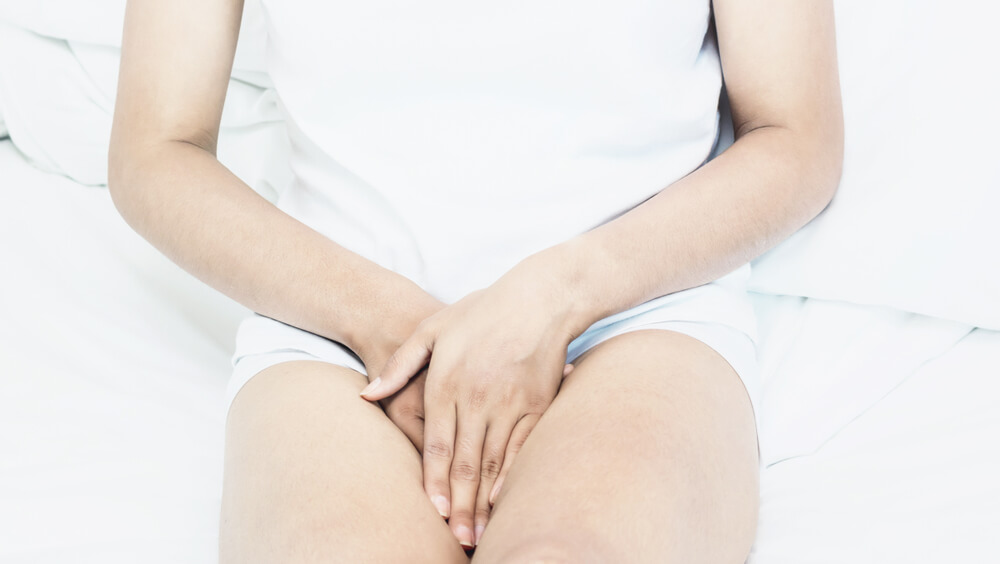Welcome to our comprehensive guide on vulvar dermatitis, a condition that can cause discomfort and irritation in the delicate vulvar area. This article will explore the various aspects of vulvar dermatitis, including its definition, symptoms, and treatment options.
Vulvar dermatitis refers to inflammation of the vulvar skin, often caused by factors such as allergies, irritants, or infections. It can manifest as itching, redness, a burning sensation, or a vulvar rash. Individuals may also experience dryness and discomfort in the vaginal area, leading to concerns and a desire for effective management strategies.
Recognizing the symptoms of vulvar dermatitis is essential for proper diagnosis and treatment.
Symptoms can include itching, redness, swelling, and a rash. Dry skin on the vagina may also be a noticeable sign of vulvar dermatitis. If you are experiencing any of these symptoms, it is essential to consult with a healthcare professional for accurate evaluation and guidance.
In the following sections, we will delve deeper into the types of vulvar dermatitis, explore treatment options, and provide helpful tips for prevention and self-care. We also encourage you to consider seeking gynecologic care, as comprehensive support and professional guidance can make a significant difference in managing vulvar dermatitis effectively.
At Comprehensive OB-GYN of the Palm Beaches, we specialize in women’s health and provide compassionate gynecologic care tailored to your unique needs. Request an appointment with our experienced team to receive personalized evaluation and treatment options for vulvar dermatitis. Let’s embark on this informative journey to empower you with knowledge and improve your overall well-being.
Types of Vulvar Dermatitis
Vulvar dermatitis encompasses various subtypes, each with its own distinct characteristics and underlying causes. Understanding these different types is essential for accurate diagnosis and appropriate treatment. Let’s explore the various forms of vulvar dermatitis:
Contact Dermatitis
This type of vulvar dermatitis occurs when the skin directly encounters irritants or allergens. Common culprits include perfumed soaps, laundry detergents, synthetic fabrics, and certain chemicals. Symptoms of contact dermatitis may include itching, redness, swelling, and a burning sensation. Identifying and avoiding specific triggers is crucial for managing symptoms effectively.

Atopic Dermatitis
Also known as vulvar eczema, atopic dermatitis can affect the vulvar area, causing intense itching, dryness, and inflammation. It is often associated with a personal or family history of allergies or asthma. In some cases, vulvar eczema can be triggered by certain foods or environmental factors. Managing this condition involves moisturizing the skin, avoiding triggers, and using prescribed medications as directed.
Irritant Dermatitis
This form of vulvar dermatitis occurs due to prolonged exposure to irritants such as urine, feces, or excessive moisture. It is commonly seen in individuals who wear incontinence pads, those with urinary incontinence, or infants in diapers. Symptoms may include redness, itching, soreness, and a burning sensation. Proper hygiene practices, frequent diaper changes, and protective barriers can help prevent and manage irritant dermatitis.
Seborrheic Dermatitis
While commonly associated with the scalp and face, seborrheic dermatitis can also affect the vulvar area. Greasy, scaly patches characterize it and may be accompanied by itching and redness. Treatment typically involves medicated shampoos, topical antifungal creams, and gentle cleansing to alleviate symptoms.
Remember, the symptoms of vulvar dermatitis can vary in severity and presentation from person to person. If you are experiencing persistent discomfort or notice any unusual changes in the vulvar area, it is essential to consult with a healthcare professional specializing in gynecologic care. They can accurately diagnose the specific type of vulvar dermatitis and recommend appropriate treatment options tailored to your needs.
Managing Vulvar Dermatitis
Adopting a comprehensive approach is crucial to managing vulvar dermatitis and alleviating discomfort effectively. Here are key strategies to help you:
Identify and Avoid Triggers: Recognize the factors that trigger your symptoms, such as harsh soaps, scented products, or synthetic fabrics.
Practice Proper Vulvar Hygiene: Keep the vulvar area clean and free from irritants. Use mild, unscented soaps and lukewarm water to cleanse the area gently.
Moisturize Regularly: Prevent dryness and reduce itching by regularly moisturizing the vulvar area. Choose fragrance-free, hypoallergenic moisturizers or emollient creams and apply them after cleansing.
Utilize Topical Treatments: Healthcare professionals sometimes prescribe topical corticosteroids or other medications to manage symptoms. Follow their instructions carefully and use these treatments as directed.
Seek Professional Guidance: If self-care measures don’t provide sufficient relief, seek gynecologic care from a healthcare professional.
By implementing these strategies and working closely with a healthcare professional, you can effectively manage vulvar dermatitis and experience improved comfort.
Gynecologic Care for Vulvar Dermatitis
Seeking gynecologic care is essential for effectively managing vulvar dermatitis and addressing any underlying concerns. Here’s how gynecologic care can support your journey toward optimal vulvar health:
- Comprehensive Evaluation: A gynecologist will conduct a thorough evaluation to assess your symptoms, medical history, and potential triggers. They will examine the vulvar area and may perform additional tests, if necessary, to determine the exact cause of your dermatitis.
- Accurate Diagnosis: A gynecologist specializes in diagnosing and treating conditions related to the female reproductive system, including vulvar dermatitis. They have the expertise to differentiate vulvar dermatitis from other similar conditions and provide you with an accurate diagnosis.
- Tailored Treatment Plan: A gynecologist will develop a personalized treatment plan based on your specific diagnosis and individual needs. This plan may include recommendations for lifestyle modifications, topical medications, or other interventions to alleviate symptoms and manage the condition effectively.
- Ongoing Support and Follow-Up: Gynecologic care ensures ongoing support throughout your journey. Your gynecologist will monitor your progress, make necessary adjustments to the treatment plan, and address any concerns or questions you may have. Regular follow-up appointments will help track your response to treatment and ensure your overall well-being.
- Education and Guidance: Gynecologic care provides you with valuable education and guidance regarding vulvar health and preventive measures. Your gynecologist can offer insights into proper hygiene practices, lifestyle modifications, and strategies to minimize the risk of future flare-ups.
Remember, open communication with your gynecologist is critical. Be sure to share any changes in symptoms, concerns, or questions you may have during your visits. You don’t have to live with dry skin on the vagina or a vulvar rash. With your gynecologist, you can work towards managing vulvar dermatitis and achieving optimal vulvar health.

What We Have Learned
It is important to remember that vulvar dermatitis is a unique condition, and what works for one person may not work for another. If self-care measures do not provide sufficient relief, seeking gynecologic care from a healthcare professional is highly recommended. They can provide a comprehensive evaluation and an accurate diagnosis and develop a personalized treatment plan tailored to your specific needs.
Prevention plays a vital role in managing vulvar dermatitis. Maintaining good vulvar hygiene, avoiding irritants, and making lifestyle modifications can reduce the risk of flare-ups and promote vulvar health.
Remember, you are not alone in dealing with vulvar dermatitis. Reach out to healthcare professionals, support groups, and online communities for guidance and support. With the right approach and support, you can effectively manage vulvar dermatitis and enjoy a more comfortable and fulfilling life.


